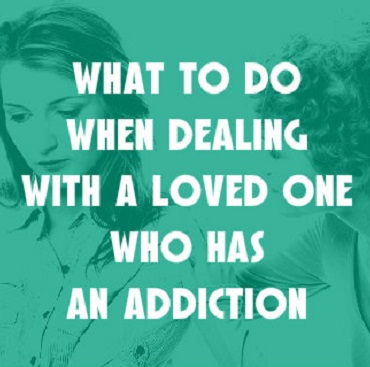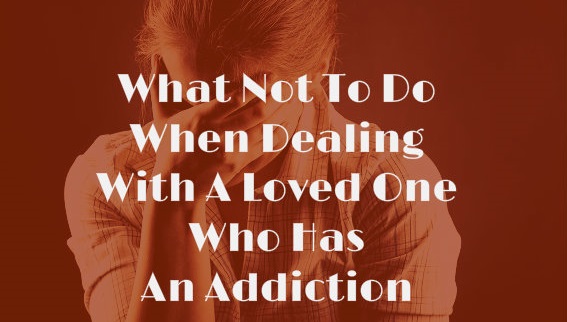What words can describe how a parent feels watching their child attempt to cover life’s pain with substances? When a child has a full-blown addiction, there can be significant financial costs on top of the emotional ones. One book which attempts to relate the family pain of substance abuse also talks about the strain placed on the family budget when addiction takes over.
An Addict’s Desperate And Drastic Steps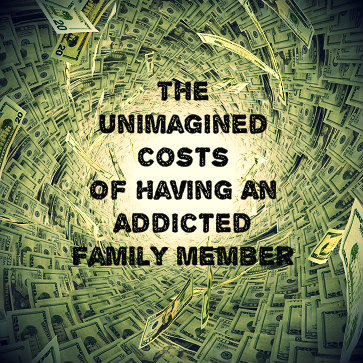
David Sheff’s Beautiful Boy recounts his son’s downward spiral with tales of missing credit cards, missing household items, missing checks and even missing coins from a sibling’s piggy bank. Addicts need their substance and they will do nearly anything to stay supplied. In this case, when the child left home and contacted mom and dad asking for more money, the desperate parents sent it.
If the addicted family member is a spouse, the financial dangers can become even greater. Joint bank accounts need to be watched carefully. The person may try to open a new line of credit in order to lay their hands on ready cash. In some cases, addicts have been known to frequent payday advance lending businesses.
What The Family Of An Addict Can Change
When this is the situation, the sober partner may need to take some more drastic steps. Names may need to be changed on bank accounts to protect savings. In extreme cases it may be necessary to establish a trust to safeguard the home and other major assets. The addiction can cost families inordinate amounts of capital, even when someone is maintaining vigilance. The drain can be devastating when fear is the only decision-maker.
When the child or spouse is at last ready to make a change, the costs for rehabilitation are not miniscule. As Sheff points out, money needs to be intentionally protected and then well-directed. Simply handing out money to a child not at home and on drugs isn’t always the best decision. However, investing in recovery is worth every penny.
Parents and spouses will need to make some very tough decisions about where to draw the financial line because addiction is costly. Often it will be helpful to talk with a mental health professional when making those kinds of decisions. They can offer dispassionate insight into whether it’s time for tough love or something else. When you’re in the middle of the situation, the overwhelming emotions can make it hard to reason wisely.
Finding Guidance When Dealing With The Addiction Of A Loved One
A biographical account cannot fully express what a family goes through when a member becomes addicted to alcohol or drugs, but it can lay out some of the potential landmines. Parents of children with addiction can learn from the mistakes of others. Get help when deciding how to support your loved one dependent on substances. There is a right time to close the billfold and a right time to open it again.
Read More To Find Out If You’re Enabling The Addict In Your Life And Break Free From The Cycle Of Broken Promises!
If someone you care about is beginning to find recovery in a 12-Step Program, you may find yourself with a lot of questions. Media images of 12-Step Programs are a caricature, and from the outside, we have to admit the practices look a little strange. Is this some sort of cult? Yes, you’re happy the addict is sober and getting help, but is this how it has to be?
What Are The 12 Steps All About?
The 12-Step Program was a program of recovery developed by alcoholics for alcoholics and other addicts. The program is based upon 12 steps that help the addict to come to grips with his or her condition and establish the kind of spiritual life that will be the basis of a solid recovery and sobriety. The program recognizes addiction as a disease—an allergy of the body and an obsession of the mind. The Alcoholics Anonymous (AA) premise is based on the understanding that if someone is addicted to a particular substance or behavior, he or she will never again be able to consume that substance or engage in that behavior in a normal or healthy way. Total abstinence is the only solution.
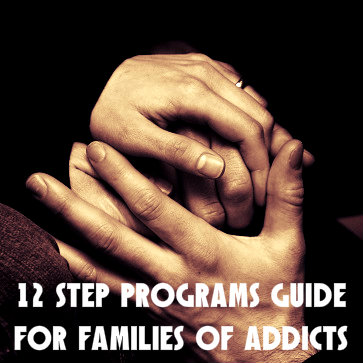 In most groups, members attend meetings regularly, read and study program literature, call and meet with other addicts or members in recovery and work regularly with a sponsor. Service to other addicts is of highest importance and seen as one of the keys to maintaining lasting sobriety.
In most groups, members attend meetings regularly, read and study program literature, call and meet with other addicts or members in recovery and work regularly with a sponsor. Service to other addicts is of highest importance and seen as one of the keys to maintaining lasting sobriety.
Aren’t 12 Step Programs A Little Overzealous?
It would appear that way to the outsider but, quite frankly, addiction is a little overzealous. For the non-addict it may be hard to fathom the prison and the punishment of being under the lash of a life-controlling addiction. As addicts, we have been so dominated by this cruel taskmaster that when we finally hit bottom we become willing to do whatever promises to rescue us.
And that proves to be quite a lot, as we soon find out once we’re in recovery. We believe that a powerful disease requires a powerful solution. In recovery we have to work as hard as the disease was working against us. But after a few years of sobriety many addicts come to see the program as the “easier, softer way,” when compared to the tyranny of addiction. When families see the beneficial results of program membership in their addict loved one, they too often become 12 Step supporters.
What Are The Roles Of Addict’s Loved Ones?
This will, to some degree, depend upon your relationship to the addict. For some recovering addicts, recovery needs to be a personal and private journey. They may not feel comfortable bringing others into their process, at least not in the beginning when they are yet fragile and convalescing. Don’t be offended by this; it isn’t personal. Recovery requires a lot of emotional work and some of us find we can better focus in the company of our program fellows, and perhaps apart from friends and family. Giving the addict the space he or she needs to heal can help to later guarantee closer relationships all around. Patience is needed.
It is wise, however, for the family of an addict to attend Al-Anon to learn more about the disease and how to deal with it. A family member’s addiction leaves scars on everyone. In Al-Anon you will come to better understand addiction, recovery and the 12-Step approach in addition to getting the support you need in healing from the wounds of addiction.
Read More On How 12 Step Programs Are Greatly Benefiting Teens
Continued From – How To Handle A Loved One With An Addiction – Part 1
No one is born with a set of instructions on how to handle an addict. My perspective on what tends to work and what doesn’t, or perhaps better said, what can be helpful and what definitely is not, is born of my own experience as an addict. When I was ready to recover, and when I wanted it because it was what I knew I needed, it mattered little what people had said or hadn’t said. Nonetheless, looking back, I can see that some approaches were helpful while others resulted only in resentments I had to later work through in recovery.
What Is Helpful When Dealing With An Addict
By labeling these ideas “helpful,” I do not mean to imply that they will achieve the desired result of getting the addict to get clean. It is rather to say that these approaches are less likely to do harm and are more likely to help maintain a relationship of trust between you and the addict. In the end, the addict has to choose recovery because she wants it—not because you do.
Give Space
Addicts are already isolators, so it may appear that all they want is more and more space and time to be alone and practice their addiction. By giving space, I mean to say, emotional space. Keep the addict near and continue to engage to the degree that she is able or willing. But refrain from making every conversation or occasion together about the disease. The addict already feels the all-pervasiveness of it. You don’t need to keep bringing it up or checking in.
Share The Struggle
Many families of addicts make the mistake of keeping the issue a secret. This failure to reach out is generally based in the fear of the stigma attached to addiction and mental illness. But you need support and help in what may be a very long battle. Start by speaking with a pastor at your church or with trusted family friends. You do not need to be ashamed, this is no one’s fault. Addiction is painfully isolating not only for the addict but for the family who has to live and deal with the secret problem as well. Humble yourself to bring others in for support.
Get Help For You
Addiction touches and traumatizes the lives of everyone in its midst. Family members and even friends can benefit from counseling or a series of Al-Anon meetings. Become educated about the disease and learn what you can and cannot realistically expect from an addict. Learn to recognize patterns of manipulation and become aware of your own potential tendencies for co-dependency and enabling. Find out how to set proper boundaries around a person with addiction and get the support you need in sticking to them. Programs like Al-Anon are miraculous in helping those who live with addicts to understand what their role is in dealing with an addict.
While I was blessed with recovery from my anorexia, I watched another young girl lose her life to it at the age of 24. If the addict you love does not find recovery, you must not blame yourself. You cannot save someone who will not be saved. By the same token, you cannot, even by poorly chosen words and unthinking behavior, stop someone from seeking recovery and getting well if that is what they have decided to do.
There is no easy way to approach, handle or talk to a loved one struggling with addiction.
If you have an addict in your life, expect it to be difficult, awkward and uncomfortable. There will be good days and bad days, there will be small successes followed by perhaps greater setbacks. You will be pushed to your emotional limit and you will be forced to face your own inability to change a person you love. You will be wholly incapable of making him see that what you want is what’s best for him.
Helping Those Dealing With Addicts
Dealing with addicts isn’t intuitive. We don’t simply discern how to get through to them or how to interact with them based on common sense or reason. While respecting addicts as people, it will help the non-addicts in their midst to understand that reason, good sense, morality and self-preservation are no longer part of a framework within which they operate or a common ground upon which to meet.
But that doesn’t mean we write addicts off as crazy and give up hope. Having been an addict myself, I had a lot of people around me trying to help or cure or fix me in different ways. From the vantage point of recovery, I can now look back and comment on what was helpful and what wasn’t. Even a decade later, I remember how the people around me treated me when I was drowning in the despair of my addiction. While nothing you say will make or break an addict’s chances of recovering, there are ways of communicating and interacting that are harmful and pain-inducing, and there are better, more helpful ways of trying to relate to a person who is indeed quite sick.
What Not To Do When Dealing With An Addict
Guilt Trips
Yes, the addict is making everyone’s life difficult and causing a lot of unnecessary pain and suffering. She breaks plans, she fails to keep her commitments, she is unreliable and unpredictable. And guess what: she already knows it. Asking things like, “Do you realize what you are doing to your mother?” or, “Don’t you understand how you are hurting us?” are not helpful. The addict, though selfish in the extreme, is not oblivious to the pain, difficulty and chaos she is bringing into the lives of those around her. But she is not able to stop it. A guilt trip presupposes that the person being guilted is acting deliberately or out of malice. It assumes that he or she has some control over the offending behavior. An addict does not.
Bargaining
You’ll do anything, make any promise, as long as the addict will agree to stop the addiction and get help. But the addict is powerless to take you up on that offer. The addiction is boss. As appealing as your offer might be, it simply isn’t possible. Addicts are known for high-stakes gambling. They gamble their families, their jobs and anything good they can claim. They know what they have to lose and they do it anyway. They don’t do it because they don’t care; they do it because the illness is in fact that powerful and enslaving.
Endless Pleading And Cajoling
This is also known as nagging and it is never helpful or effective. It’s not that the addict doesn’t care, it’s that she cannot stop what she is doing on the basis of your wishes—even if she wanted to. The disease is a lot stronger than that. It’s a lot stronger than she is. In the end, the addict may tell you what you want to hear, but then go back to business as usual. She knows you think there is a problem. You don’t have to continue to restate it.
Implying Fault Or Agency
Loved ones must burn into their minds that both substance and process addictions are not choices that the addict is making. As a result, blaming addicts or implying that they are practicing their addiction simply because they are selfish and unloving is not only incorrect, but cruel. Understand that the addict is in the grip of something much bigger than him or herself. Addiction is an illness like diabetes or cancer. You may hope that addicts will take the appropriate steps to manage the condition, but it is unhelpful to imply that they do what they do on purpose.
Ignoring The Issue
If there is nothing that can be said to make an addict want to seek help, and if the nagging and the pleading are ineffective, does that mean it’s better to say nothing at all? Is it better to ignore the issue, make the best of it or hope it all just goes away? No. Something does indeed need to be said and maybe even done, but the ways in which you speak and act hold the difference between showing genuine love and support, and being a nuisance and a nag.
While your words and expressions of concern may not effect immediate change in the addict’s life, while they may not leave your chat promising to check into treatment, the addict will benefit from the knowledge that you cared enough to say something out of concern and love. Don’t pretend there isn’t a problem.
Continued In – How to Handle A Loved One With An Addiction – Part 2
For parents struggling with addictions, trying to manage normal day-to-day family issues such as sibling rivalry and school stresses and pressures is compounded by a special complication, something specific to families dealing with addictions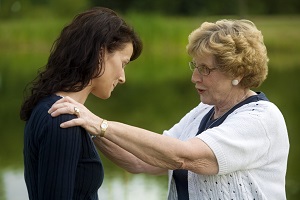 (or families in which one or both parents are unable to function in their parenting role on a regular basis). As hard as most parents try to protect their children from the negative impact of their drinking or drug use, the impact is experienced by all family members. One way this plays out is through rigid and dysfunctional family roles.
(or families in which one or both parents are unable to function in their parenting role on a regular basis). As hard as most parents try to protect their children from the negative impact of their drinking or drug use, the impact is experienced by all family members. One way this plays out is through rigid and dysfunctional family roles.
Before we continue, let me say something about family dysfunction. As a treatment provider for people with addictions and their families for many years, I saw how devastating addictions can be to lives young and old. What’s important to remember here is that despite having an addiction that often leads to very negative behaviors—including violence, abuse, neglect—and despite being labeled “dysfunctional” (we’ll get to that in a moment), these are families that also are bonded by love and loyalty. These are parents who love their children and want the best for them and children who love and defend their parents despite having suffered due to their behaviors.
Taking apart the word “dysfunctional,” the prefix ‘dys’ refers to pain. Dyspepsia is a stomachache; dysmenorrhea is the technical term for painful periods. Dysfunction in the family context means that a family is functioning in pain. Meals do get made, children attend school, play sports, parents work, but the context in which all this happens is emotionally painful. Sometimes my clients would get defensive about the term “dysfunctional,” telling me that it felt like blame to say their family “ didn’t function.” So I make a point of agreeing: there is functioning and often children from families impacted by addiction function very well in some ways; but it would also be unfair and inaccurate to fail to acknowledge the pain that occurs too.
Family Roles
In all families, affected by addiction or not, family members take on roles. Sometimes Mom takes on the role of the discipliner, sometimes Mom is the “banker” for the family. Dad might have been the “sports guy” or the social planner. Imagine a particular behavior—for example, climbing a tree or catching a frog—and most people would then be able to predict which family member would be most likely to engage in that behavior and which would be least likely. The kid who was “outdoorsy” or a girl who fit the “tomboy” role would be first in line. In healthy families, the roles arise from internal personality characteristics and are flexible—as a child grows, develops, and changes, so do the roles.
In families affected by addiction, certain specific roles seem to evolve. These roles are more rigid and predictable, and have been described by a few well-known writers in the field of addiction and family roles. The names change from writer to writer, but the basic roles are similar.
The Second in Command:
In families where addiction is impacting the dynamics, the alcoholics or addicts often have someone on “their side,” someone who takes on the task of keeping the family functioning by keeping the person who is using as functional as possible. This person calls in sick for the drinker, or makes excuses at “Meet the Teachers Night.” They find themselves lying to the kids, the neighbors, their friends and ultimately themselves. Family systems therapists refer to this role as the Chief Enabler, or Codependent. Sometimes in the literature on addiction and alcoholism, people refer to the codependent person as “addicted to the addict.” These people seem to need the relationship more than they seem to need their own health. Let’s take a closer look at this role.
This role is a tough one: the job includes handling all the chores and responsibilities the drinker is not doing. The Chief Enabler just takes over, managing, organizing, acting as the Executive Director, administrative assistant, communications director, and database manager, over-functioning in all these roles (the school principal called? Your boss called? A run-in with police? “I’ll handle it” is the typical Chief Enabler response). He or she is the glue that holds the family together, usually working long hours; often at a job earning money and then at home taking care of all the details that can get left unmanaged when an addict uses.
The purpose of this role is to prevent the family (including the drinker) from experiencing the negative consequences of addiction. Of course this is impossible, which makes this person feel hopeless and frustrated, but also very important, since there are small successes and triumphs (such as a little league game attended by the addict or alcoholic, or open house at the school) along the way. The Chief Enabler feels “stuck” and often very angry about their stuckness because they know how important they are to the “success” of the family (in fact, it often feels like “if I don’t do it, it won’t get done”).
People in this role often receive much praise and support from the community. People outside the family often admire the Chief Enabler, which is one of the few positives about being in this role—often others outside the family recognize how critical the Chief Enablers actions are to the health or even survival of the family—so you hear comments like, “Mary really holds that family together.” The other side of this coin is that they also feel alone and furious at being stuck with being the responsible one who has to take care of everything. The fact that these people often do an excellent job, partly because they’ve had so much practice, is their blessing and their curse and is the catch 22 they experience as “stuckness.”
Read Part 2: Dysfunctional Family Roles: The Family Hero Tries to Hide the Obvious Here.
20 Mar 2013
How You Can Support Someone With an Addiction
If you’ve had it up to here with nightly bouts of drunkenness from your spouse or loved one, or you have a good friend who is trying to quit but having a difficult time, you know that the road ahead isn’t an easy one. You may want to support someone who is genuinely interested in getting clean and sober, but may not quite know how to go about it.
Read More
09 Jun 2011
What Is an Interventionist?
Many families struggle on their own when someone they love has developed an addiction to drugs or alcohol. They may be ashamed or just think they can fix it on their own. Often, the addicted person is simply too determined to continue using drugs and alcohol and will make false promises, outright lie, manipulate, and generally find ways to do so.


